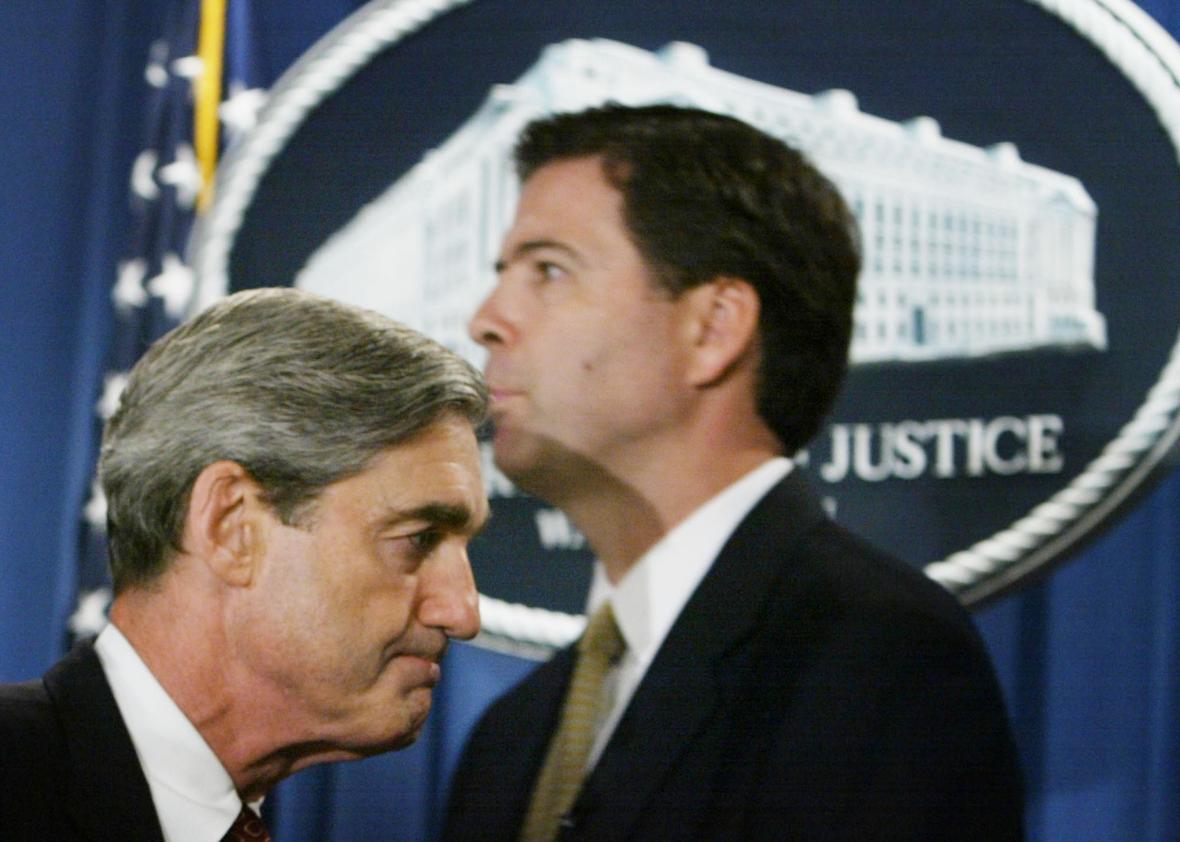The New York Times reported on Wednesday that Special Counsel Robert Mueller’s investigation has asked the White House for documents about Trump’s decision to fire former FBI Director James Comey. This includes any documentation of an Oval Office meeting Trump had with the Russians the day after Comey was fired, in which the president reportedly told them “great pressure” on him personally had been “taken off” because of the sacking.
From the Times:
In recent weeks, Mr. Mueller’s office sent a document to the White House that detailed 13 different areas that investigators want more information about. Since then, administration lawyers have been scouring White House emails and asking officials whether they have other documents or notes that may pertain to Mr. Mueller’s requests.
One of the requests is about a meeting Mr. Trump had in May with Russian officials in the Oval Office the day after James B. Comey, the F.B.I. director, was fired. That day, Mr. Trump met with the Russian foreign minister, Sergey V. Lavrov, and the Russian ambassador to the United States at the time, Sergey I. Kislyak, along with other Russian officials. The New York Times reported that in the meeting Mr. Trump had said that firing Mr. Comey relieved “great pressure” on him.
In a lot of ways, this should not be considered unusual. Mueller is just doing what any good investigator would do and tracking down possible leads surrounding his investigation, which is reportedly delving into whether or not Trump intended to obstruct justice with the firing of Comey. “It is entirely unsurprising,” Georgetown Law professor and former federal prosecutor Julie O’Sullivan told me over email. “Any investigator worth his salt would look into this.”
At the same time, the news demonstrates that Mueller considers the obstruction portion of the investigation to be significant and will not just limit his examination of the matter into the respective credibility of Comey and Trump. Comey testified under oath that the president suggested he halt the FBI’s investigation into former National Security Advisor Michael Flynn. Trump says he’s lying. Mueller is apparently not content to just look at their words alone, but is willing to examine outside evidence that could point to whether or not Trump acted with “corrupt intent” when he fired Comey. This apparently includes the relevance of him possibly telling the foreign power at the center of the scandal that the pressure was off. “It obviously is relevant to his reasons for firing Comey, and thus to the obstruction investigation,” O’Sullivan wrote.
Again, this could be considered significant because it demonstrates that Mueller is not leaving stones unturned. The president’s backers have questioned the scope of the inquiry—with some Republicans in Congress going so far as to call for Mueller to resign. “We’ve […] moved off of the original topic, which was the Russian issue, and now we’re talking about obstruction of justice and we’re just going to keep expanding the scope looking for something,” Arizona Rep. Andy Biggs said in June while calling for Mueller to step down. Newt Gingrich—who led the impeachment of Bill Clinton for, among other charges, obstruction of justice—has argued that “technically, the president of the United States cannot obstruct justice.”
This news is another indication that Mueller thinks that maybe the president can and that as special counsel he will be leading a thorough investigation of that question.
The other reason why the news might matter is that the obstruction portion seems to be coming up relatively early in the inquiry.
“[It was] inevitable that Mueller’s work would include some kind of judgment on that legal question,” Duke University law professor and former Enron prosecutor Samuel W. Buell told me over email. “But this and other developments seem to show him working relatively quickly on several fronts, perhaps with some sense of urgency about timing.”
